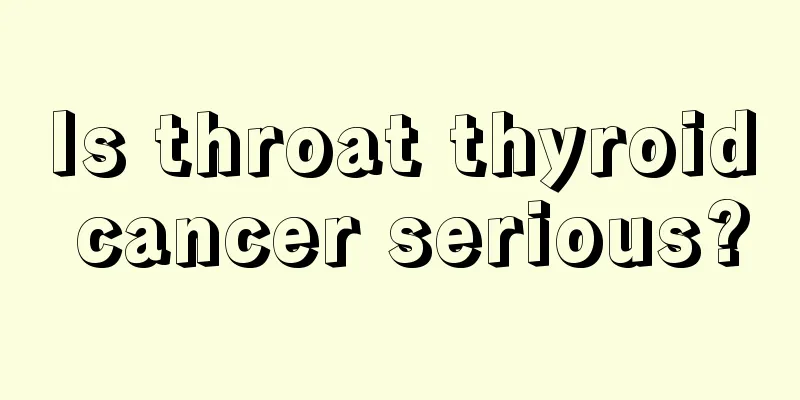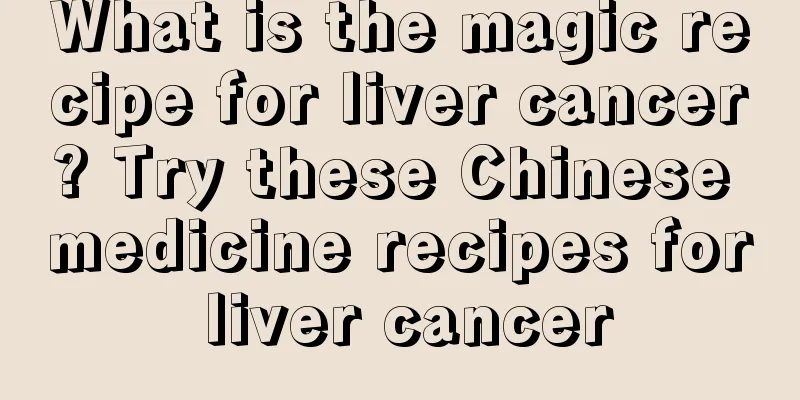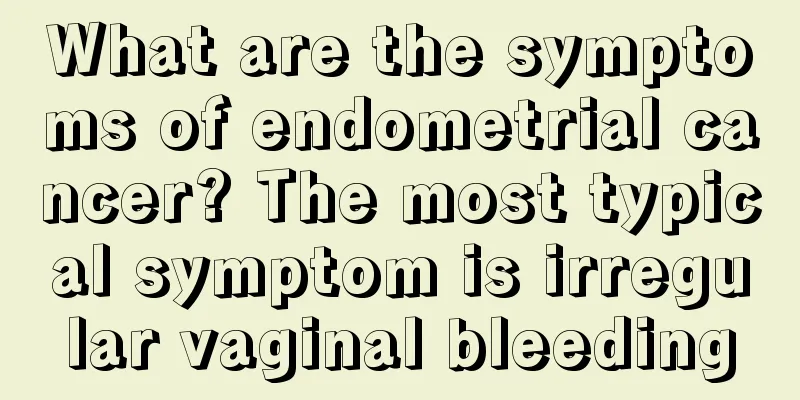Is throat thyroid cancer serious?

|
Throat thyroid cancer is a serious disease. The symptoms may not be obvious in the early stage, but it may be life-threatening in the late stage. Therefore, if any abnormality is found, you should seek medical treatment for diagnosis and treatment as soon as possible. The severity of thyroid cancer varies depending on the pathological type, stage and treatment timing. Through timely diagnosis and reasonable treatment, the cure rate of early patients can be as high as more than 90%. 1 Causes of thyroid cancer The occurrence of thyroid cancer is mainly related to multiple factors such as genetics, environment and physiology. Genetic factors: People with a family history of thyroid cancer have a relatively higher risk, especially certain types of cancer such as medullary thyroid cancer. Environmental factors: Long-term living in areas with excessive or deficient iodine intake, or exposure to radiation environments, will increase the chance of disease. Physiological factors: If underlying thyroid diseases such as hormone disorders, chronic thyroiditis or nodular goiter are not treated in time, they may develop into cancer. Recommendations: Check thyroid function regularly, especially for those with a family history of the disease, avoid high radiation exposure, and eat a balanced diet to stabilize iodine intake. 2 Treatment of thyroid cancer Treatment varies depending on the condition and usually includes surgery, radioactive iodine therapy, targeted therapy, etc. Surgical resection: Early-stage cancer can be cured by partial or complete thyroidectomy, and in advanced stages it can be combined with other treatments to inhibit the spread of cancer cells. Radioactive iodine therapy: This is used to treat some types of thyroid cancer and can remove residual thyroid tissue or eliminate metastases. Targeted therapy: Especially for patients with advanced or recurrent disease, the use of drugs such as sorafenib can effectively inhibit the growth of cancer cells. Recommendation: Before treatment, carefully evaluate the cancer type, stage, and personal physical condition, follow the guidance of the specialist, and follow the follow-up plan to observe the efficacy. 3 Life Management and Prevention During the treatment and postoperative recovery period, patients should also conduct scientific life management: Dietary regulation: Avoid excessive intake of iodized salt or seafood. Eat more high-protein and high-vitamin foods, such as fish, vegetables and fruits, to help postoperative recovery. Emotional regulation: High psychological stress may cause endocrine disorders, and maintaining a positive attitude can promote the normal functioning of the immune system. Regular follow-up: Check thyroid function as required by the doctor after surgery, monitor thyroid hormone levels, and detect the risk of recurrence in a timely manner. Although laryngeal thyroid cancer is a serious disease, most patients can achieve a good prognosis through early detection and effective treatment. It is recommended to check thyroid health regularly, seek medical attention immediately if symptoms occur, and actively cooperate with treatment, and never delay the disease. |
<<: Is right ethmoid sinus osteoma serious? Can it be cured? How long can I live?
>>: Does stage 1 breast cancer require chemotherapy?
Recommend
Can milk shower gel be used to wash the face?
Many of you may have heard of milk baths. In anci...
Complications of intravenous transfusion_Complications of intravenous transfusion
In our daily life, getting sick is a common thing...
How to correct upturned upper lip
A perky upper lip can be corrected through dental...
Does nasopharyngeal cancer require surgery? How to check?
Nasopharyngeal carcinoma is a disturbing disease....
5 complications of ovarian cancer
Ovarian cancer is a very common tumor in women. D...
Can washing your face with vinegar remove acne marks?
In life, many people are troubled by acne problem...
River shrimp allergy symptoms
Everyone has a different physique, so they may ha...
Is it good to wash your face with cold water in summer
The temperature is high in summer, and people pre...
How to detect nasopharyngeal cancer
How to detect nasopharyngeal cancer? 1. Common sy...
What is the reason for red ringworm on the chin
In our lives, many people will find that the skin...
Six walking methods to lose weight and reshape your body
In terms of walking speed, you should first warm ...
Is skin cancer on the arm contagious?
Many patients and friends are always worried abou...
What are the effects and functions of salt combination
Salt is a very important food in people's dai...
How do laryngeal cancer patients conduct pronunciation training after surgery
Laryngeal cancer is a malignant tumor of the lary...
What to do if you are allergic to coriander
Coriander is a vegetable that many friends actual...









